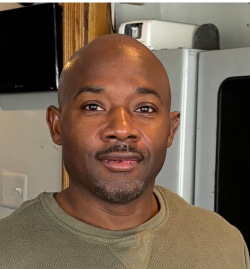

Dennis Boatwright, II
Political Activist

When will the Congressional Black Caucus start leveraging its power as a small group of Republican lawmakers did during the House Speaker vote?
The Congressional Black Caucus must strategically leverage its voting bloc power as the dozen, or so conservative Republicans masterfully did in early January during the selection of the U.S. House Speaker.
What is typically a routine event turned into a hard-fought internal battle within Republican ranks. The holdouts, led by Rep. Matt Gaetz (R-FL), demanded that a crucial list of preconditions be met before they handed their deciding votes to Rep. Kevin McCarthy (R-CA).
For a minute the confusion made it seem possible that the soon-to-be Minority Speaker Hakeem Jeffries (D-NY) would pull off an historical upset by becoming Speaker of the House on the watch of the majority party. Yet this did not happen. Before round 15 of voting commenced, McCarthy and his supporters gave in to the demands made by the small band. Consequently, on the fourth day of voting McCarthy was finally elected House Speaker.
As the drama played out this writer imagined how things could change for African Americans when the CBC begin to weaponize its voting bloc power, too. If this happens the CBC will be able to extract meaningful concessions from the Democratic party. Hence, many observers of Black politics ask: If a handful of Republican lawmakers can get what they wanted, why can’t the CBC do the same?
Since the 435-member U.S. House of Representatives is nearly evenly divided, a group of just twenty congresspersons could tip the balance in either direction. To become the Speaker of the House a congressperson needs 218 votes. When the group of Republicans repeatedly withheld their vote McCarthy had to endure yet another round of late-night voting. This shortfall forced McCarthy to concede to many of their demands. One such demand was to cap discretionary spending at fiscal 2022 levels and another was to establish term limits for all House members.
On the other hand, the CBC has not made headlines of this kind despite its considerable size.
The CBC consists of fifty-five members including two non-voting members. The caucus’s size empowers it to obstruct business as usual in the House whenever it is in the interest of their constituents. But this has not occurred since the inception of this caucus in 1971. In fact, since that time the CBC has been in lockstep with the Democratic Party and has only been able to achieve symbolic victories such as federal observances of Martin Luther King, Jr birthday (1983)and Juneteenth (2021). This lopsided coalition intensified during the Clinton-Obama years. Today Pres. Biden enjoys unquestioned loyalty from the CBC.
If ever the CBC is going to get reparations or other meaningful bills passed specifically for African Americans, Rep. James Clyburn (D-SC) and the rest of the CBC members must use their political power prudently. This means not handing over votes to the Democratic power before demands are met. This goal can be reached by embracing the original non-aligned mission of the CBC.
That Black-first sentiment was captured in the words of founding member Rep. William L. Clay, Sr., when he said, “Black people have no permanent friends, no permanent enemies … just permanent interests.”
Dennis S. Boatwright II is the founding director of the Center for Pan African Studies, a think tank headquartered in Detroit, Michigan. He can be reached at 313 434-2224, dsboatwright43@gmail.com, 15700 W. Ten Mile Rd., Suite 212, Southfield, Michigan 48075
Posted: Tue, Jan 24, 2023









